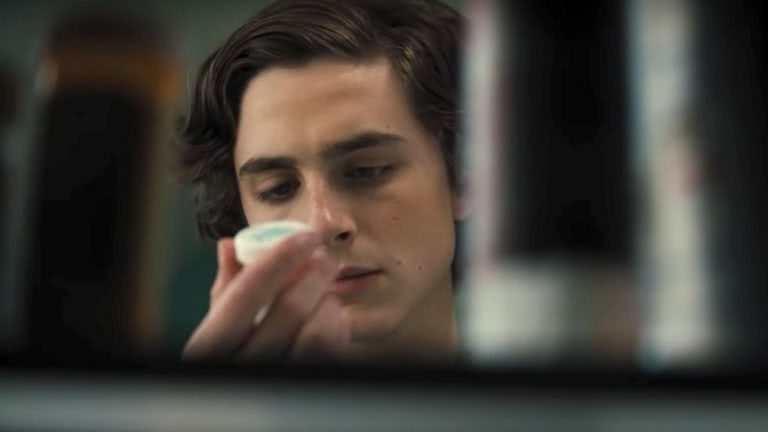Drugs make you absent. Sometimes literally – your friends and family awake in the morning to discover you haven’t come home; you disappear for months that you later find you can’t reliably account for – sometimes not. People look across the breakfast table at you, and it’s like you’re somewhere entirely different, even as you’re sitting there, pouring milk across your cereal.
It’s this very absence that Beautiful Boy, a new film based on a series of memoirs by father and son David and Nic Sheff, captures perfectly. We don’t even see Nic (Timothée Chalamet), a talented young writer with a taste for self-aggrandising authors like F. Scott Fitzgerald and a drug addiction, for the film’s opening chunk. But even when he’s off-screen, he is felt; his absence giving off a feeling entirely of its own.
Watch the Beautiful Boy trailer here:
Instead, we open on his father, David (Steve Carrell). Nic hasn’t come home, and David’s anxiously awaiting him, pacing up and down his study. Before too long, we realise that this isn’t the first time Nic has gone missing. A little bit after that, we learn that it won’t be the last, either. And even when Nic does start showing up – begging for help in a coffee shop; shivering and soaking in a dirty alleyway – we never really feel like we’re seeing all of him. Only the parts of him that need things.
Yet it is in Nic’s intermittent returns that Beautiful Boy starts to show its flaws. Chalamet, so commanding in both Lady Bird and the star-making Call Me By Your Name, is dealing with a different kind of character here, and he struggles with it. Nic is essentially and immediately earnest in a way that none of Chalamet’s previous characters have been – he has none of Elio’s guarded side eye, or Kyle’s defensive snobbishness. But rather than let that honesty reveal itself slowly, Chalamet tuckers right down into the scenery, his performance an antic mix of lip-sucks, and stiff arm spasms, and odd, affected head tilts. Instead of going true, Chalamet goes big.
Perhaps that would be alright if the players around Chalamet aimed for the same thing, but they don’t. Carrell doubles down on the skills he demonstrated in the quietly powerful Last Flag Flying – drawing the action close to his chest; speaking softly and slowly – creating an odd, unsettling dissonance when the two leads come head to head. A scene in a coffee shop, clearly designed to be the film’s emotional fulcrum and one showed off heavily in the marketing materials, feels more like an acting exercise than anything else: as though Chalamet has been instructed to take things high energy, and Carrell to take them low.
Watch the cast and crew of Beautiful Boy interviewed about the film:
Worse still, Beautiful Boy struggles to find a straightforward way to capture the repetitive pattern of sobriety and relapse essential to Nic’s story. Getting clean is agonisingly dull, despite the tumultuous affect it can have on one’s life, but director Felix Van Groeningen fumbles this key narrative element with a messy timeline that cuts back and forth between Nic’s highs and lows in a manner clearly designed to keep the action moving. And then, tellingly, the film ends not so much with a bang but a whimper. Indeed, the real story comes to close after we’ve cut to black, in a title card flashed up before the end credits, and not in Beautiful Boy’s muddled climax.
It’s a shame. The creative team behind Beautiful Boy clearly have nothing but good intentions – another title card, pointing out the limited support addicts and their families get at a governmental level makes that perfectly clear. But as it stands, Beautiful Boy is at best a well-meaning misfire, and at worst a strange, uneven weepy.
Beautiful Boy is in Australian cinemas this Thursday November 25.


































